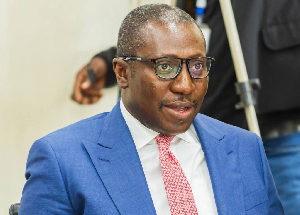The Minority in Parliament is raising red flags over what it describes as data manipulation by the government, following the announcement of a new staff-level agreement between the International Monetary Fund (IMF) and Ghana.
According to the Minority, discrepancies between fiscal figures presented by the Finance Ministry and those assessed by the IMF suggest deliberate efforts to misrepresent the country’s economic performance for political gain.
“While the Minister for Finance, in the 2025 Budget, announced the primary fiscal deficit on a commitment basis (the fiscal anchor of the IMF programme) to be 3.9% of GDP, the IMF found it to be 3.25%, a difference of about 0.7% of GDP,” the Minority stated.
They also accused the IMF of shifting the goalposts in its analysis, stating:
“The IMF itself departed from its own definition of the primary fiscal balance as outlined in the Technical Memorandum of Understanding agreed at the beginning of the programme.”
The Minority’s concern centers on the treatment of multi-year payables.
“By allowing multi-year payables to feature in the determination of the primary fiscal balance as if they occurred in 2024, the IMF Ghana Mission has effectively assessed the fiscal balance using metrics that differ from all previous reviews conducted under the programme.”
Despite their concerns, the Minority expressed hope that the IMF Executive Board’s final decision would be grounded in transparency and objectivity.
“We are confident that the Executive Board of the IMF will review the fiscal performance with integrity and ensure that our economy is free from data manipulation, thereby restoring confidence in the country’s fiscal data,” the statement concluded.
While acknowledging progress under the Extended Credit Facility programme, the IMF also flagged a sharp decline in performance toward the end of 2024.
The Fund cited several issues, including fiscal slippages ahead of the elections, ballooning government arrears, inflation overshooting targets, and stalled structural reforms.
If approved, the new agreement will unlock an additional US$370 million in financial support for Ghana, a critical injection as the country continues efforts to restore macroeconomic stability and investor confidence.
Watch the latest edition of BizTech below:



